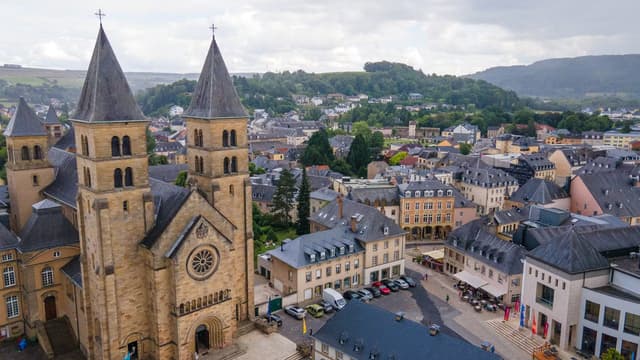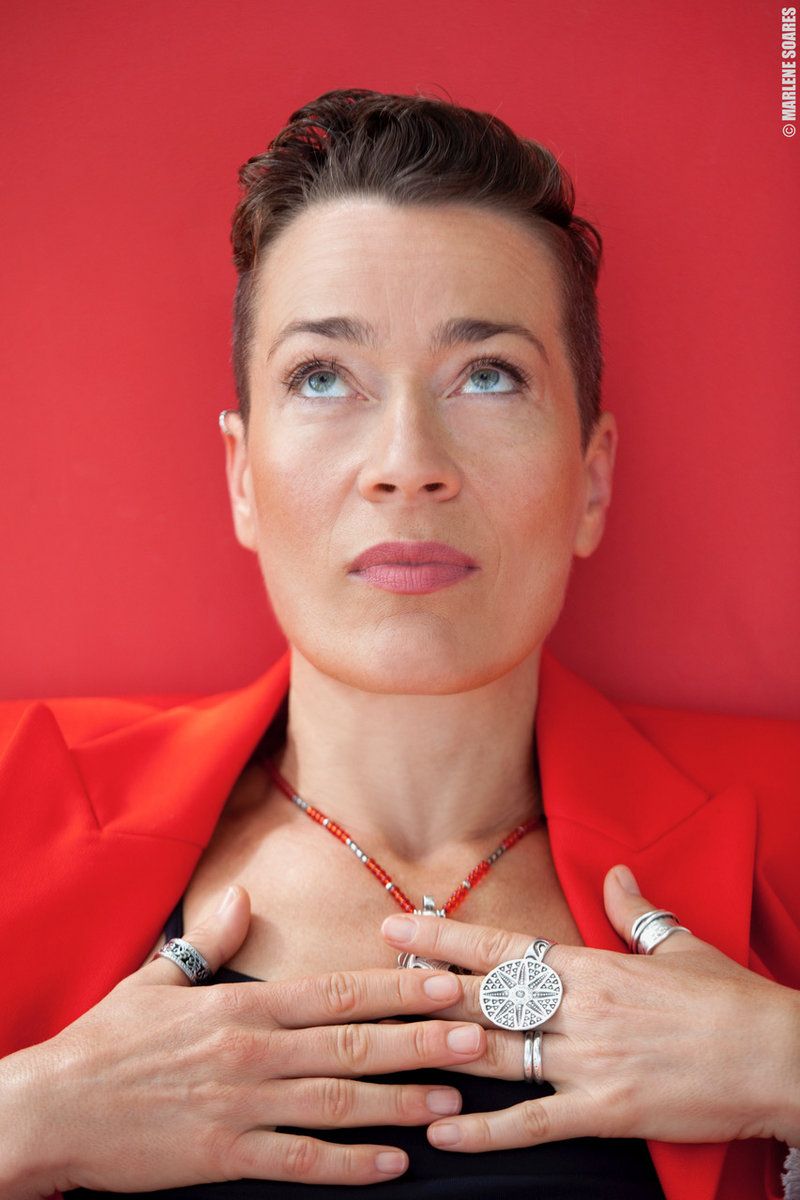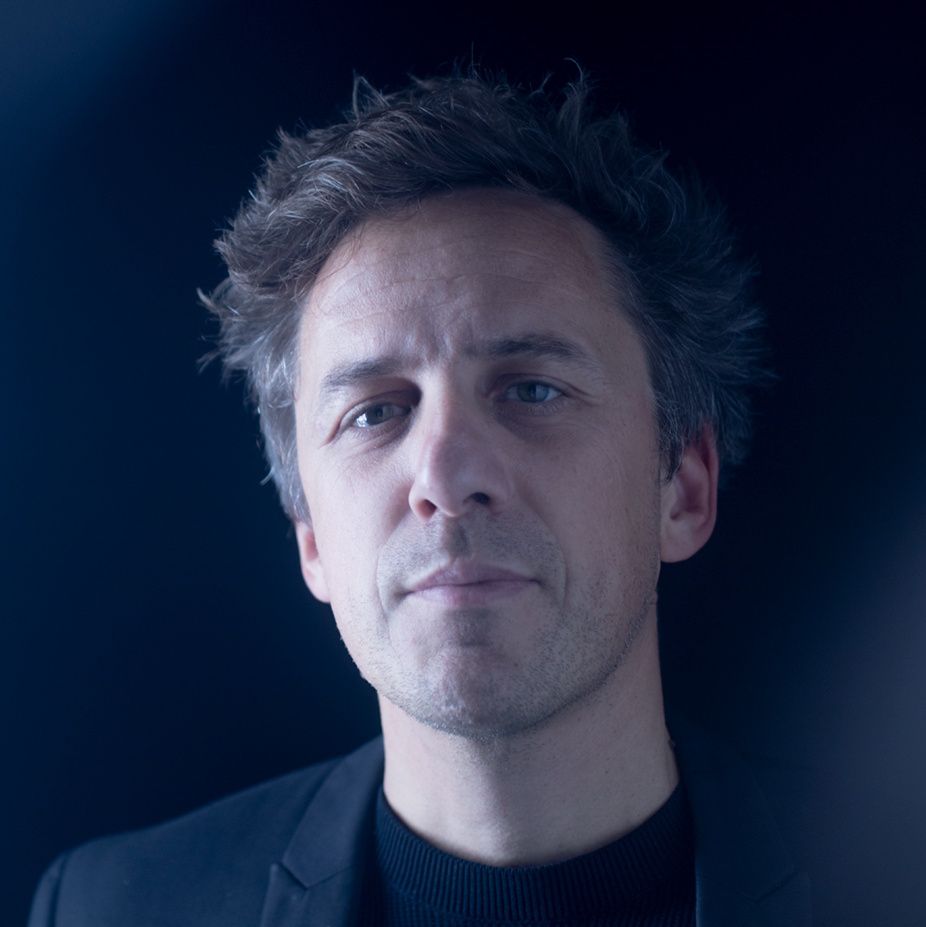
Luxembourg's music scene: from monastic chorales to electronic beats
Beneath its prim facades and financial gloss, Luxembourg has a surprisingly rich musical history, ranging from the solemn chants of cloistered monks to open-air festivals where the bass hits harder than tax reform. Luxembourg's music scene doesn't shout — it murmurs elegantly and purposefully.
A benevolent musical legacy ranging from the meditative seriousness of monastic chants to the sensitive chaos of modern festivals lurks beneath the surface of this small but stubborn country. This isn’t a story of spectacle, but of resonance: deep and layered, waiting to be heard by those who know how to listen.
Historical roots: from monasteries to the national anthem
Luxembourg's relationship with music stretches back so far that it predates the concept of the country itself. By the 3rd century, when the land was little more than a Roman whisper, a mosaic in Wichten already depicted muses lounging in stone, as if waiting for the country to be born. By the 8th century, Echternach Abbey had become a spiritual and musical beacon, its chants echoing through the hills. A century later, the Officium Sancti Willibrordi became one of the earliest recorded notations in the region — a fragile monument to sound, captured before it could be forgotten.
In the 19th century, melodies became political. Patriotic hymns such as Michel Lentz’s 'De Feierwon' were not just songs; they were declarations of identity, sung against the backdrop of shifting borders.
And even today, despite its small size, Luxembourg hums with an unexpected diversity — a persistent echo of a well-kept secret reverberating through the valleys.
Classical music
Jazz
Pop and rock
Hip-hop
Nestled discreetly between France, Germany and Belgium, Luxembourg is a subtle collector of musical influences. It borrows, translates and repurposes, and in doing so invents something unique. Multilingualism here isn't a gimmick; it's the medium. Luxembourgish artists navigate French, German, English and Luxembourgish not to expand their reach, but because that’s how they think and express themselves: how they feel and how they sound.
Each language has a different rhythm and emotional quality, and local musicians weave these into songs that reflect a sense of identity that transcends borders. The result? Music that doesn't just speak to more people — it speaks like more people.
Luxembourg's culture and traditions

Echternach Abbey and it’s role
Founded in 698 by St Willibrord, a man who clearly understood the power of silence and sound, Echternach Abbey became the spiritual and musical heart of medieval Luxembourg. Its scriptorium didn’t just copy manuscripts; it created them. Manuscripts such as the Echternach Sacramentary and Antiphonary (c. 1030) were not just books; they were acts of devotion, written in ink and setting the rhythm of worship for generations. In their pages, you can trace not just notes, but also the gradual development of liturgical structure and notation — the building blocks of Western sacred music.
And while centuries have passed, the abbey’s pulse has never stopped beating. Each year, on the Tuesday after Trinity Sunday, the town reverberates with the surreal and solemn choreography of the Sprangprëssioun, a “jumping procession” dreamed up by saints and pagans alike. Now recognised by UNESCO as intangible heritage, the procession attracts pilgrims, tourists and the curious alike, all drawn to this lingering echo of sacred theatre and communal ecstasy.
'Ons Heemecht': an anthem that reflects the soul of a nation
In 1859, the poet Michel Lentz wrote Ons Heemecht ('Our Homeland'), a text that celebrated rivers and skies rather than rifles and blood. Five years later, composer Jean-Antoine Zinnen set it to music, and on 5 June 1864, it was performed for the first time in Ettelbruck, where the Alzette and Sauer rivers converge.
By 1895, it had become the country's unofficial anthem, although Luxembourg did not bother to formalise this until 1993. There are no battles or bloodied drums — just a hymn to landscape, language and belonging. It is less a song of conquest than of presence, and in today's geopolitical landscape, this may be the bravest statement of all.
Where the Alzette slowly flows,The Sauer plays wild pranks,Where fragrant vineyards amply growOn the Mosella's banks;There lies the land for which we wouldDare everything down here,Our own, our native land which ranksDeeply in our hearts.
In her shady woodland of trees,Guarded stilly by peace,Without splendor nor pageantries,With warmth and love she laughes!Her folks with glee say to themselves,And they aren't void dreams:How homely 'tis to live therein,How great 'tis to be home.
Singing, chanting, from mount and vale,The earth who bore our births,Love has echoed a loyal gale,In each and every breast!For her, no song's too beautiful,Every word that rings from her,Our soul moves like sounds ethereal,And the eye shines like fire.
O Thou above whose powerful handMakes States or lays them low,Protect this Luxembourger landFrom foreign yoke and woe.Your spirit of liberty bestowOn us now as of yore.Let Freedom's sun in glory glowFor now and evermore.
Classic music in Luxembourg: philharmonic, conservatory and festivals
Luxembourg's classical music scene is both rich and diverse, combining historical traditions with modern trends. The country offers music lovers a wealth of opportunities to enjoy high-quality music, from prestigious orchestras to unique festivals.
Laurent Ménager, the national composer of Luxembourg
Often referred to as Luxembourg’s national composer, Laurent Ménager (1835–1902) was more than just a figurehead — he embodied a movement. He was a composer, organist, choirmaster and teacher, and the list of roles he held reads like that of a one-man cultural ministry. His works not only shaped Luxembourg’s musical repertoire, but also its educational landscape, helping to establish a lasting culture of choral and community music.
Born in the Pfaffenthal quarter to a family of bakers, Ménager’s early life reads like the overture to a myth: child prodigy learns the flute, violin, cello and piano — then heads off to the Cologne Conservatory to study under the renowned Ferdinand Hiller. By 1856, he was back — not in glory, but in service. He taught at the Athénée, played the organ at the local church and created music not for posterity, but for the people in the pews.
His main genres were:
Choral and vocal music
Operettas and theatre music
Instrumental music
Menagerre's funeral on 7 February 1902 was attended by over 6,000 people, including representatives from 45 societies. This attests to his immense popularity and influence.
Orchestre Philharmonique du Luxembourg
Founded in 1933 as the RTL Radio Symphony Orchestra, the Orchestre Philharmonique du Luxembourg (OPL) has evolved from a regional ensemble into an orchestra that pulses with Europe's rhythm. Its origin story is shrouded in radio static and idealism — under the direction of Henri Pensis, the orchestra was conducted with great passion (and, quite frankly, often with great intensity — both before and after the war).
By 1996, after the state took over from RTL's privatised remains, the orchestra had been reborn — and renamed. Since 2005, the OPL has been based at the Philharmonie Luxembourg, a modernist temple of sound in the Kirchberg district. Designed by Christian de Portzamparc, the building is not just a venue — it is an instrument. The OPL plays it with the same reverence with which it approaches Mahler or Debussy.

From Gustavo Gimeno’s inspired precision — his Mahler No. 4 was performed as if in Technicolor — to Martin Rajna's appointment in 2025, the orchestra continues to evolve without losing its identity. Rajna, whose first appearance in November 2024 was met with murmurs in the press and sighs of approval from the audience, is set to officially take the reins for the 2026/27 season.
But the OPL doesn't sit still. It tours, leaving pieces of Luxembourg on some of the world's most prestigious stages. Its collaborations with world-class soloists and conductors are legendary. Its Pentatone discography reads like a love letter to 20^(th)-century genius: Debussy, Stravinsky, Mahler, Ravel and Shostakovich, to name a few, have all been recorded for posterity.
Jazz and dance in Luxembourg
Jazz didn’t arrive in Luxembourg; it drifted in, spreading through army bases and radio frequencies. After the First World War, it was the American soldiers who brought more than just uniforms and foreign slang; they also brought rhythm and soul. Soul. Trouble. Through stations such as the American Forces Network (AFN), the people of Luxembourg caught wind of this new sound — raw, restless and unapologetically alive.
By 1959, jazz had found a home — not in the capital, but in Wiltz, a town with the spirit to host one of the country's first dedicated jazz venues, the Wiltz Jazz Club, which attracted visitors from far and wide. It became a stage for legends. When Ella Fitzgerald and Duke Ellington performed at the Wiltz Festival in 1969, it was more than just a concert; it was history unfolding on a summer's night, leaving behind the scent of brass and bourbon.
Today, Luxembourg’s jazz scene still embodies that duality: it is both cosmopolitan and intimate, and both experimental and reverent. It's not just a genre. It's a language, and the country speaks it with quiet, elegant fluency.

Both Sascha Ley and Pascal Schumacher are rooted in tradition yet completely disinterested in its boundaries. Luxembourg's jazz scene has its icons and its disruptors.


Pop, rock and alternative scene: when a small country plays loud
Luxembourg hasn’t just participated in the Eurovision Song Contest; it has dominated it. It has done so quietly and elegantly, with just enough flair to make larger countries nervous.
With five victories — in 1961, 1965, 1972, 1973 and 1983 — this tiny Grand Duchy is one of the most successful nations in Eurovision history. And yes, some of those victories were won by foreign artists performing under the Luxembourgish flag: France Gall and Vicky Leandros — borrowed voices, perhaps, but unforgettable moments. (And isn’t that very Luxembourgish — soft power via song?)
Read article
Besides Eurovision artists, the Luxembourg music scene is connected and shining with other rock, electronic and hip-hop artists and festivals. There are some of them:





Luxembourg's music scene proves that cultural significance has nothing to do with size. From Gregorian chants to experimental jazz and from Eurovision ballads to Luxembourgish hip-hop, this place produces not just music, but voices — each one distinct and insistent and wholly unbothered by borders. It's not just a scene. It's a soundscape. And it's still growing.
Frequently Asked Questions (FAQ)
Which music festivals are worth visiting in Luxembourg?
Where can I go to listen to live music in Luxembourg?
Are there any performance opportunities or support available for young musicians?
Source: www.philharmonie.lu, www.harrisonparrott.com, en.wikipedia.org, www.luxembourgaccueil.lu, gustavogimeno.com, orbilu.uni.lu, ich.unesco.org, nationalanthems.info, musicpublishers.lu, www.army.mil, www.pascalschumacher.com, saschaley.bandcamp.com, viewer.eluxemburgensia.lu, luxembourg.public.lu, www.8notes.com, www.angelfire.com, www.beast.lu, www.youtube.com
We took photos from these sources: https://www.luxembourgaccueil.lu/ eluxemburgensia.lu https://www.pascalschumacher.com/ https://saschaley.bandcamp.com/ Unsplash